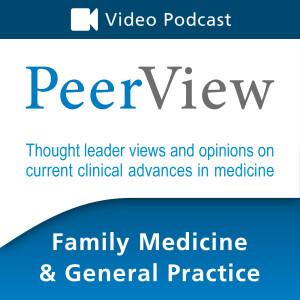
Jeanne M. Palmer, MD - The Modern Management of Myelofibrosis: Practical Perspectives Surrounding the Use of JAK Inhibitors and Novel Therapeutics in the Peri-Transplant Setting
 2022-07-08
2022-07-08
Download
Right click and do "save link as"
Go online to PeerView.com/BJB860 to view the activity, download slides and practice aids, and complete the post-test to earn credit. The past decade has seen new insights into the cytogenetics, molecular genetics, and disease biology of myelofibrosis (MF), including the approval of first- and second-generation JAK inhibitors and newer evidence on using JAK inhibitors in conjunction with hematopoietic stem cell transplantation (HCT). How can all of these advances be employed in an effective and safe way—and lead to improved outcomes in MF? Based on a recent PeerView Live CaseBook event, this activity will answer that question and offer an expert-led review of the latest efficacy, safety, and tolerability data associated with JAKi-based therapy and the role of HCT in patient treatment. This program also features case-based illustrations of therapy selection and sequencing designed to highlight the key take-homes of the MF lecture segments. Upon completion of this activity, participants should be better able to: Assess patient- and disease-related features that inform the diagnosis, risk assessment, and treatment of myelofibrosis (MF), Analyze the current therapeutic roles of JAK inhibitors and other emerging therapies in the peri-transplant setting for managing patients with MF, Apply current data on the safety, efficacy, and tolerability of JAK inhibitors and other emerging therapeutic options for treating transplant-eligible patients with MF, Develop treatment plans that incorporate first- and second-generation JAK inhibitors for managing patients with MF, including those who are eligible for allogeneic HSCT or as sequential options in the non-HSCT setting.
view more
More Episodes
012345678910111213141516171819
Create your
podcast in
minutes
- Full-featured podcast site
- Unlimited storage and bandwidth
- Comprehensive podcast stats
- Distribute to Apple Podcasts, Spotify, and more
- Make money with your podcast
It is Free
- Privacy Policy
- Cookie Policy
- Terms of Use
- Consent Preferences
- Copyright © 2015-2024 Podbean.com





